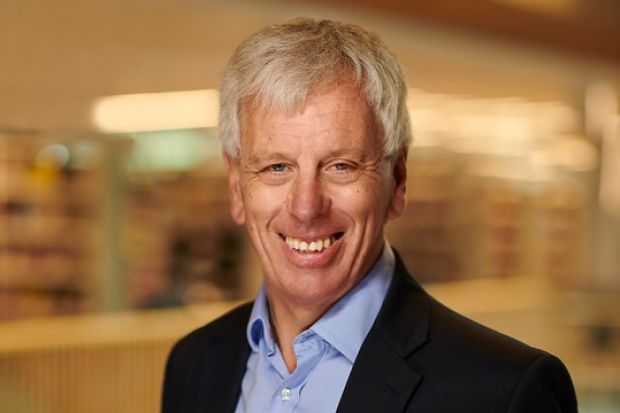The UK’s longest-serving university leader, John Cater, has announced that he will retire at the end of January.
Dr Cater was appointed chief executive of Edge Hill University in 1993 and led the former teacher training college in Lancashire to university title in 2006. He had initially joined as a geography lecturer in 1979.
With Dr Cater as vice-chancellor, Edge Hill has retained its strength in teacher training but has added a range of other disciplines, including a new medical school that opened in 2018.
It has been shortlisted for University of the Year in the Times Higher Education Awards five times since 2007 – more than any other institution during that period – and it won the top accolade in 2014.
Announcing his retirement, Dr Cater said that it had been “an immense privilege to lead Edge Hill University for over thirty years”.
“This is a university which has been transformed and I want to thank my colleagues, the staff and students of the university, who have worked together to create the successful values-driven institution we have become,” he said.
“I am extremely proud of the experience we deliver for our students and of the contribution that the university and our community make to the life of the region and beyond.”
Clive Elliott, chair of Edge Hill’s governors, said Dr Cater had “guided the institution through some of the most challenging times the sector has experienced, always with an approach which reflects the values of the university”.
“His tenure has been marked by unwavering commitment and outstanding leadership, and he leaves the university in an incredibly strong and enviable position,” Mr Elliott said.
Speaking to THE in 2022, Dr Cater joked that he had managed to survive in the job for so long by “keep[ing] my head down” but also credited careful financial management and relentless efforts to improve Edge Hill’s reputation and relationships.
“We’ve supplied tens of thousands of teachers, who in turn will have influenced millions of children. Tens of thousands of people have gone to work in the health service, who will help repair lives. In the end, that’s what it’s about,” he reflected at the time.
“I work in education because it’s almost a unique chance to improve someone’s life chances, in a way in which almost nothing else is. It sounds so damn corny, but I genuinely believe it.”
Register to continue
Why register?
- Registration is free and only takes a moment
- Once registered, you can read 3 articles a month
- Sign up for our newsletter
Subscribe
Or subscribe for unlimited access to:
- Unlimited access to news, views, insights & reviews
- Digital editions
- Digital access to THE’s university and college rankings analysis
Already registered or a current subscriber? Login







